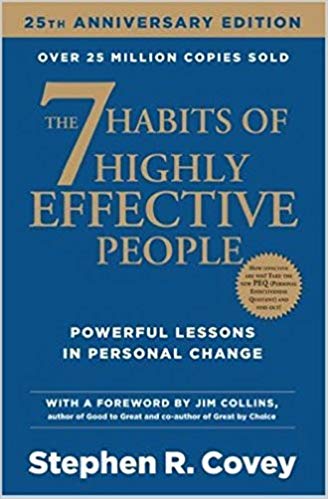

This article is an excerpt from the Shortform summary of "The 7 Habits of Highly Effective People" by Stephen Covey. Shortform has the world's best summaries of books you should be reading.
Like this article? Sign up for a free trial here .
Though there are several different mentalities, the Abundance Mentality is particularly useful and can help you learn and adapt.
In habit 4, we discussed the win/win paradigm and the five traits that form a personality. Once of these essential traits was character, and a core part of your character is your mentality. Read on to find out more about the Abundance Mentality and its benefits.
What is the Abundance Mentality?
An Abundance Mentality reassures you that there is plenty — of success, money, and happiness — for everyone. Keep reading to find out what the abundance mentality is, and how it
You can only see the possibility of both people winning if you believe that one person’s success doesn’t come at the expense of the other person’s success. The Abundance Mentality requires a deep conviction of self-worth and security; once you know that you possess a unique inner value and a personal sense of direction, you can appreciate and celebrate others’ value and direction.
On the other side of the spectrum is the Scarcity Mentality, which says that life only offers a limited supply of good fortune, and if someone else has it then there’s less for you. Many people are scripted with the Scarcity Mentality, and that forms the basis for the Win/Lose paradigm. These people don’t have an intrinsic sense of self-worth, but rather measure their value in comparison with other people’s successes or failures. Because of this, a person with Scarcity Mentality struggles to be genuinely happy for other people’s successes and tends to surround herself with people who make her feel superior.
An Abundance Mentality reassures you that there is plenty — of success, money, and happiness — for everyone. You can only see the possibility of both people winning if you believe that one person’s success doesn’t come at the expense of the other person’s success. The Abundance Mentality requires a deep conviction of self-worth and security; once you know that you possess a unique inner value and a personal sense of direction, you can appreciate and celebrate others’ value and direction.
On the other side of the spectrum is the Scarcity Mentality, which says that life only offers a limited supply of good fortune, and if someone else has it then there’s less for you. Many people are scripted with the Scarcity Mentality, and that forms the basis for the Win/Lose paradigm. These people don’t have an intrinsic sense of self-worth, but rather measure their value in comparison with other people’s successes or failures. Because of this, a person with Scarcity Mentality struggles to be genuinely happy for other people’s successes and tends to surround herself with people who make her feel superior. Contrarily, An Abundance Mentality means the person has a high sense of self-awareness and self-worth.
In particular, the Abundance Mentality can help drive paradigm shifts. As we know from the 7 Habits for Highly Effective People, shifting your paradigm is an ongoing process. The Abundance Mentality can help you view the world in a more positive way that can help with this shift.
———End of Preview———

Like what you just read? Read the rest of the world's best summary of "The 7 Habits of Highly Effective People" at Shortform . Learn the book's critical concepts in 20 minutes or less .
Here's what you'll find in our full The 7 Habits of Highly Effective People summary :
- How to prioritize the hundred tasks you have to focus on the one or two that really matter
- The right way to resolve every disagreement and argument
- How to avoid burning out and succeed over 20+ years






